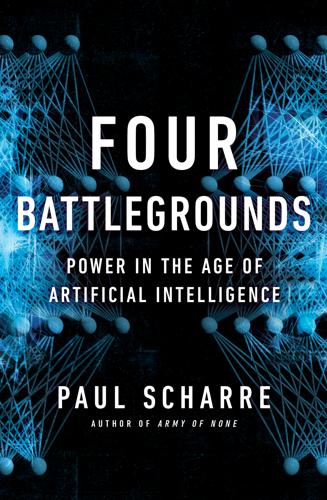
Four Battlegrounds
by
Paul Scharre
Published 18 Jan 2023
Rosenfeld et al., A Constructive Prediction of the Generalization Error Across Scales (arXiv.org, December 20, 2019), https://arxiv.org/pdf/1909.12673.pdf; Tom Henighan et al., Scaling Laws for Autoregressive Generative Modeling (arXiv.org, November 6, 2020), https://arxiv.org/pdf/2010.14701.pdf. 20“Data is the new oil”: Joris Toonders, “Data Is the New Oil of the Digital Economy,” Wired, n.d., https://www.wired.com/insights/2014/07/data-new-oil-digital-economy/; Kiran Bhageshpur, “Data Is the New Oil—and That’s a Good Thing,” Forbes, November 15, 2019, https://www.forbes.com/sites/forbestechcouncil/2019/11/15/data-is-the-new-oil-and-thats-a-good-thing/?sh=10eefed73045; Adeola Adesina, “Data Is the New Oil,” Medium, November 13, 2018, https://medium.com/@adeolaadesina/data-is-the-new-oil-2947ed8804f6; Will Murphy, “Data Is the New Oil,” Towards Data Science, May 7, 2017, https://towardsdatascience.com/data-is-the-new-oil-f11440e80dd0; Giuliano Giacaglia, “Data Is the New Oil,” Hackernoon, February 9, 2019, https://hackernoon.com/data-is-the-new-oil-1227197762b2. 20data-is-not-the-new-oil articles: Antonio Garcia Martinez, “No, Data Is Not the New Oil,” Wired, February 26, 2019, https://www.wired.com/story/no-data-is-not-the-new-oil/; Bernard Marr, “Here’s Why Data Is Not the New Oil,” Forbes, March 5, 2018, https://www.forbes.com/sites/bernardmarr/2018/03/05/heres-why-data-is-not-the-new-oil/?
…
sh=10eefed73045; Adeola Adesina, “Data Is the New Oil,” Medium, November 13, 2018, https://medium.com/@adeolaadesina/data-is-the-new-oil-2947ed8804f6; Will Murphy, “Data Is the New Oil,” Towards Data Science, May 7, 2017, https://towardsdatascience.com/data-is-the-new-oil-f11440e80dd0; Giuliano Giacaglia, “Data Is the New Oil,” Hackernoon, February 9, 2019, https://hackernoon.com/data-is-the-new-oil-1227197762b2. 20data-is-not-the-new-oil articles: Antonio Garcia Martinez, “No, Data Is Not the New Oil,” Wired, February 26, 2019, https://www.wired.com/story/no-data-is-not-the-new-oil/; Bernard Marr, “Here’s Why Data Is Not the New Oil,” Forbes, March 5, 2018, https://www.forbes.com/sites/bernardmarr/2018/03/05/heres-why-data-is-not-the-new-oil/?sh=4b277fa13aa9; Samuel Flender, “Data Is Not the New Oil,” Towards Data Science, February 10, 2019, https://towardsdatascience.com/data-is-not-the-new-oil-bdb31f61bc2d; John Thuma, “Data Is Not the New Oil!”
…
AI researchers continue to see performance gains from ever-larger models and datasets, demonstrating the value of large datasets. The search for historical analogies to understand the geostrategic significance of digital power, such as data, is understandable, even if such analogies are bound to be imperfect. “Data is the new oil” became a common refrain for a brief period, spawning articles and op-eds in outlets such as Wired, Forbes, and the New York Times. (Not long after came a counter-wave of data-is-not-the-new-oil articles, including in many of the same outlets.) Data, of course, is not oil. But it can be a useful metaphor in certain ways.
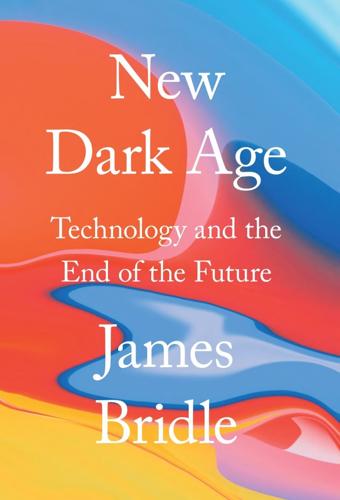
New Dark Age: Technology and the End of the Future
by
James Bridle
Published 18 Jun 2018
Hollenbach, ‘Technology and Collective Action: The Effect of Cell Phone Coverage on Political Violence in Africa’, American Political Science Review 107:2 (May 2013). 14.Michael Palmer, ‘Data is the New Oil’, blog post, ANA, November 2006, ana.blogs.com. 15.‘The world’s most valuable resource is no longer oil, but data’, Economist, May 6, 2017, economist.com. 16.David Reid, ‘Mastercard’s boss just told a Saudi audience that “data is the new oil”’, CNBC, October 24, 2017, cnbc.com. 17.Stephen Kerr MP, Kevin Brennan MP, debate on ‘Leaving the EU: Data Protection’, October 12, 2017, transcript. 18.Palmer, ‘Data is the New Oil’. 19.For details of imperial classification and forced naming, see James C. Scott, Seeing Like a State, New Haven, CT: Yale University Press, 1998. 20.Arundhati Roy, ‘The End of Imagination’, Guardian, August 1, 1998, theguardian.com. 21.Sandia National Laboratories, ‘Expert Judgment on Markers to Deter Inadvertent Human Intrusion into the Waste Isolation Pilot Plant’, report, SAND92-1382 / UC-721, page F-49, available at wipp.energy.gov. 22.And into Eternity … Communication over 10000s of Years: How Will We Tell our Children’s Children Where the Nuclear Waste is?
…
The effects are seen everywhere. And yet we continue to place an inordinate value upon information that locks us into repeated cycles of violence, destruction, and death. Given our long history of doing exactly the same thing with other commodities, this realisation should not and cannot be dismissed. The phrase ‘data is the new oil’ was apparently coined in 2006 by Clive Humby, the British mathematician and architect of the Tesco Clubcard, a supermarket reward programme.14 Since then, it has been repeated and amplified, first by marketers, then by entrepreneurs, and ultimately by business leaders and policy makers. In May 2017, the Economist devoted an entire issue to the proposition, declaring that ‘smartphones and the internet have made data abundant, ubiquitous and far more valuable … By collecting more data, a firm has more scope to improve its products, which attracts more users, generating even more data, and so on.’15 The president and CEO of Mastercard told an audience in Saudi Arabia, the world’s largest producer of actual oil, that data could be as effective as crude as a means of generating wealth (he also said it was a ‘public good’).16 In British parliamentary debates on leaving the European Union, data’s oily qualities were cited by Members of Parliament on both sides.17 Yet few such citations address the implications of long-term, systemic and global reliance on such a poisonous material, or the dubious circumstances of its extraction.
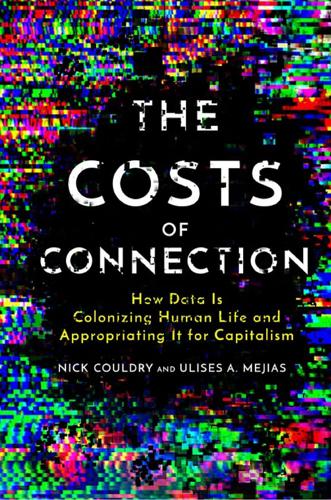
The Costs of Connection: How Data Is Colonizing Human Life and Appropriating It for Capitalism
by
Nick Couldry
and
Ulises A. Mejias
Published 19 Aug 2019
Oxford, UK: Oxford University Press, 2005. . “The ‘New’ Imperialism: Accumulation by Dispossession.” Socialist Register 40 (2004): 63–87. . A Short History of Neoliberalism. New York: Oxford University Press, 2010. Haupt, Michael. “‘Data Is the New Oil’—A Ludicrous Proposition.” Twenty One Hundred, May 2, 2016. https://medium.com/twenty-one-hundred/data-is-the-new-oil-a-ludicrous-proposition. Hawkins, Amy. “Beijing’s Big Brother Tech Needs African Faces.” Foreign Policy (blog), July 24, 2018. https://foreignpolicy.com/2018/07/24/beijings-big-brother-tech-needs-african-faces/. Health and Safety Executive Statistics.
…
It is the by-product of social interactions that are mediated by digital technologies, a by-product that is captured and processed by a third party that is not intimately involved with the people in the interaction and indeed can operate at many removes from them through the market for selling data. The first use of the metaphor of data as the “new oil” is attributed to Clive Humby, the conceptual grandfather of the loyalty shopping-club card, who in 2006 said, “Data is the new oil. It’s valuable, but if unrefined it cannot really be used. It has to be changed into gas, plastic, chemicals, et cetera to create a valuable entity that drives profitable activity; so must data be broken down, analyzed for it to have value.”14 Data must thus be presented as an ownerless resource that can be exploited only by certain parties (what Julie Cohen calls data refineries).15 A few excerpts from a report by the Organization for Economic Cooperation and Development are worth quoting at length.
…
See Schiller, Digital Depression, 246; Thatcher, O’Sullivan, and Mahmoudi, “Data Colonialism”; Sassen, Expulsions; Zuboff, “Big Other,” 75–89; and Cohen, “Biopolitical Public Domain.” 10. Moore, Web of Life. 11. World Economic Forum, Personal Data. 12. Haupt, “A Ludicrous Proposition.” 13. World Economic Forum, Personal Data. 14. Palmer, “Data Is the New Oil.” 15. Cohen, “Biopolitical Public Domain.” 16. OECD, “Data-Driven,” 195–97. 17. Klein, This Changes Everything, 103. 18. Acosta, “Extractivismo y Neoextractivismo.” 19. In Klein, “Dancing the World.” 20. Morozov, “After the Facebook Scandal.” 21. Cohen, “Biopolitical Public Domain.” 22.
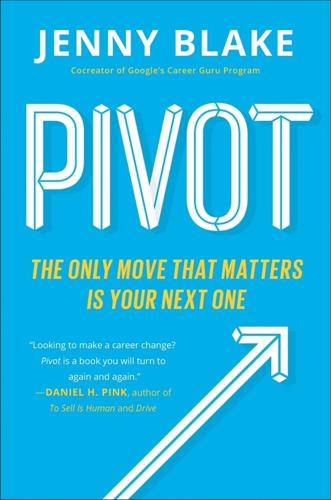
Pivot: The Only Move That Matters Is Your Next One
by
Jenny Blake
Published 14 Jul 2016
Chapter 7: Make Yourself Discoverable “Well-being is enhanced”: Brian R. Little, Me, Myself, and Us: The Science of Personality and the Art of Well-Being (New York: PublicAffairs, 2014), 196. suggests aiming for “1,000 True Fans”: Kevin Kelly, “1,000 True Fans,” KK.org, March 4, 2008, kk.org/thetechnium/1000-true-fans/. “data is the new oil”: Michael Palmer, “Data Is the New Oil,” ANA Marketing Maestros, November 3, 2006, ana.blogs.com/maestros/2006/11/data_is_the_new.html. STAGE THREE: PILOT “Making assumptions and then taking them personally”: Don Miguel Ruiz with Janet Mills, The Voice of Knowledge: A Practical Guide to Inner Peace (San Rafael, CA: Amber-Allen Publishing, 2004).
…
Aggregating and analyzing data, conducting original research: With increasingly more data available on everything from how many steps we take, to our heart rate, to mapping our genome, people will need help making sense of this data, “separating the signal from the noise,” as political pollster Nate Silver does. Some say that “data is the new oil” in our digital economy, and must be refined in order to add value. REVEL IN THE WORK OTHERS REJECT After four years at her PR firm, Amy Schoenberger, who you met in the introduction, started feeling uninspired. She knew that it was time to make a change; however, she loved her company, the culture, and the people, and she did not want to leave.
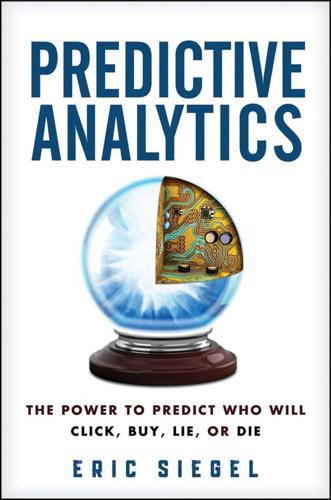
Predictive Analytics: The Power to Predict Who Will Click, Buy, Lie, or Die
by
Eric Siegel
Published 19 Feb 2013
The challenge is tackled by a systematic, scientific means to develop and continually improve prediction—to literally learn to predict. The solution is machine learning—computers automatically developing new knowledge and capabilities by furiously feeding on modern society’s greatest and most potent unnatural resource: data. “Feed Me!”—Food for Thought for the Machine Data is the new oil. —European Consumer Commissioner Meglena Kuneva The only source of knowledge is experience. —Albert Einstein In God we trust. All others must bring data. —William Edwards Deming (a business professor famous for work in manufacturing) Most people couldn’t be less interested in data. It can seem like such dry, boring stuff.
…
Budgeting the staff and tools for a PA project requires this leap, knowing not what specifically will be discovered and yet trusting that something will be. Sitting on an expert panel at Predictive Analytics World, leading UK consultant Tom Khabaza put it this way: “Projects never fail due to lack of patterns.” With The Data Effect in mind, the scientist rests easy. Data is the new oil. It’s this century’s greatest possession and often considered an organization’s most important strategic asset. Several thought leaders have dubbed it as such—“the new oil”—including European Consumer Commissioner Meglena Kuneva, who also calls it “the new currency of the digital world.” It’s not a hyperbole.
…
Olofson, Susan Feldman, Steve Conway, Matthew Eastwood, and Natalya Yezhkova, “Worldwide Big Data Technology and Services 2012–2012 Forecast,” ICD Analyze the Future, March 2012, Doc #233485. www.idc.com/getdoc.jsp?containerId=233485. The Prediction Effect: Tom Khabaza says, “There are always patterns.” Tom Khabaza, “Nine Laws of Data Mining—Part 2,” Data Mining & Predictive Analytics, edited by Tom Khabaza, January 14, 2012. http://khabaza.codimension.net/index_files/Page346.htm. “Personal data is the new oil of the Internet and the new currency of the digital world”: Meglena Kuneva, European Consumer Commissioner, March 2009, “Personal Data: The Emergence of a New Asset Class,” An Initiative of the World Economic Forum, January 2011. http://gerdleonhard.typepad.com/files/wef_ittc_personaldatanewasset_report_2011.pdf.
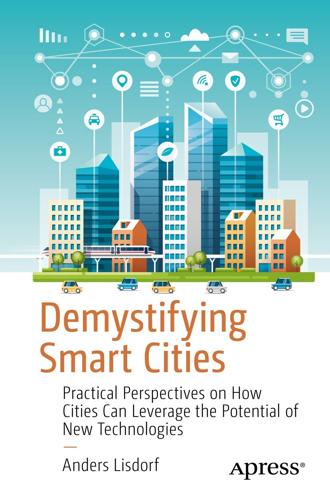
Demystifying Smart Cities
by
Anders Lisdorf
We will consider what a device is and how they connect in distributed solutions. This is what is typically referred to as the Internet of Things. We look at the challenges of managing thousands or even millions of devices and what it takes to secure them. Chapter 4 is about data. Some say data is the new oil; regardless of whether that is true, it is a crucial aspect to understand since all data is not the same and needs to be secured and managed differently. Recent increased concern about privacy and exponential growth in unstructured sensor data will be addressed. Chapter 5 is about intelligence, in particular artificial intelligence (AI) .
…
It will sap the powers of those trying to innovate and will divert attention from things that are considered valuable in the organization. © Anders Lisdorf 2020 A. LisdorfDemystifying Smart Citieshttps://doi.org/10.1007/978-1-4842-5377-9_9 9. Build the data refinery: Because cities run on data Anders Lisdorf1 (1)Copenhagen, Denmark From raw data to useful information “Data is the new oil!” Mathematician and IT architect Clive Humby seems to have been the first to coin the phrase in 2006 where he helped Tesco develop from a fledgling UK retail chain to an intercontinental titan that rivals the likes of Walmart and Carrefour, through the use of data. This was done with the Tesco loyalty program that pioneered offers targeted to particular segments.
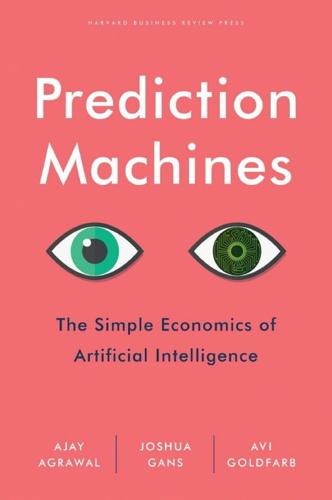
Prediction Machines: The Simple Economics of Artificial Intelligence
by
Ajay Agrawal
,
Joshua Gans
and
Avi Goldfarb
Published 16 Apr 2018
First eBook Edition: Apr 2018 ISBN: 978-1-63369-567-2 eISBN: 978-1-63369-568-9 To our families, colleagues, students, and startups who inspired us to think clearly and deeply about artificial intelligence. Contents Cover Title Page Copyright Dedication Acknowledgments 1. Introduction: Machine Intelligence 2. Cheap Changes Everything Part One: Prediction 3. Prediction Machine Magic 4. Why It’s Called Intelligence 5. Data Is the New Oil 6. The New Division of Labor Part Two: Decision Making 7. Unpacking Decisions 8. The Value of Judgment 9. Predicting Judgment 10. Taming Complexity 11. Fully Automated Decision Making Part Three: Tools 12. Deconstructing Work Flows 13. Decomposing Decisions 14. Job Redesign Part Four: Strategy 15.
…
We remain agnostic on the link between prediction and intelligence. None of our conclusions rely on taking a position on whether advances in prediction represent advances in intelligence. We focus on the consequences of a drop in the cost of prediction, not a drop in the cost of intelligence. 5 Data Is the New Oil Hal Varian, the chief economist at Google, channeling Coca-Cola’s Robert Goizueta, said in 2013, “[A] billion hours ago, modern homo sapiens emerged. A billion minutes ago, Christianity began. A billion seconds ago, the IBM PC was released. A billion Google searches ago … was this morning.”1 Google isn’t the only company with extraordinary amounts of data.
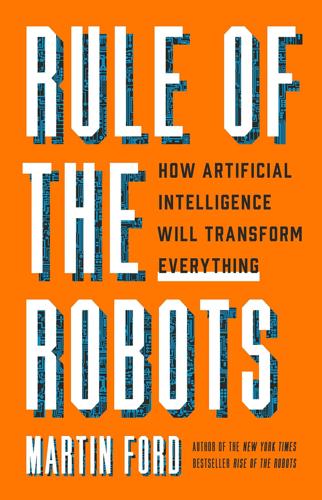
Rule of the Robots: How Artificial Intelligence Will Transform Everything
by
Martin Ford
Published 13 Sep 2021
However, it is generally limited to areas like web search, social media interactions and online shopping transactions. In these arenas, the established companies are likely to remain dominant, but far more data of completely different kinds resides across the economy and society, under the control of governments, organizations and businesses in other industries. It’s often said data is the new oil. If we embrace this analogy, then it’s fair to say that the tech companies in many ways fulfill a role similar to that of perhaps Halliburton, offering the technology and know-how required to extract value from the resource. The tech giants do, of course, also control huge data reserves of their own, but still the lion’s share of this ever-expanding global data resource lies in the hands of others.
…
While Google’s access to NHS data that was originally contracted to DeepMind immediately led to an outcry in the United Kingdom, Chinese tech companies generally benefit from a smoother path to implementation and profitability when it comes to leveraging artificial intelligence in areas like healthcare and education. If data is the new oil, then China’s AI entrepreneurs are new age wildcatters—drilling and erecting pumps to extract value at every promising location across a relatively unpoliced digital terrain. Even before the explosion of venture-backed AI startups, China’s major technology companies, especially Tencent, Alibaba and Baidu, were making massive investments in artificial intelligence research and development.

Vassal State
by
Angus Hanton
Published 25 Mar 2024
These are the three leading companies buying up British industry, and for each of these New York firms the West End of London is just a place for their regional office. It is becoming clear that the true financial capital of the UK is located on Manhattan Island. Our safari of businesses operating in the UK also confirms that ‘data is the new oil’ and US corporations are at the well heads.24 This is most apparent in the enormous quantities of data collected by each of the ‘big five’ tech companies which are customer-facing (Meta/Facebook, Apple, Microsoft, Amazon and Alphabet/Google – collectively known as ‘MAMAA’), but there is more to it than that.
…
[post on community discussion page], Steam [website] (30 December 2019), https://steamcommunity.com/discussions/forum/0/1747892655526380525/. 18 Grant Prior, ‘Skanska installs giant aquarium in Heron Tower’, Construction Enquirer [website] (11 August 2010), https://www.constructionenquirer.com/2010/08/11/skanska-installs-europes-largest-private-aquarium/. 19 ‘The national balance sheet and capital stocks, preliminary estimates, UK: 2022’, Office for National Statistics [website] (5 May 2022), https://www.ons.gov.uk/economy/nationalaccounts/uksectoraccounts/bulletins/thenationalbalancesheetandcapitalstockspreliminaryestimatesuk/2022#. 20 ‘Mergers and acquisitions involving UK companies, annual overview: 2018’, Office for National Statistics [website] (5 March 2019), https://www.ons.gov.uk/businessindustryandtrade/changestobusiness/mergersandacquisitions/articles/ukmergersandacquisitionsactivityincontext/2018. 21 Grace Maral Burnett, ‘Cross-border M&A held market share amid pandemic’, Bloomberg Law [website] (14 January 2021). 22 Bethan Darwin, ‘What new solicitors need to do get £160,000 salaries’, BusinessLive [website] (21 February 2022), https://www.business-live.co.uk/opinion-analysis/what-new-solicitors-needs-160000-23164926. 23 ‘McKinsey fact sheet’ [PDF], McKinsey [website] (31 May 2023), https://www.mckinsey.com/~/media/mckinsey/about%20us/media%20center/mckinseymediafactsheet_31-may-2023.pdf. 24 ‘Data is the new oil’ was the title of a talk given by the British mathematician and entrepreneur Clive Humby at the Association of National Advertisers conference in 2006. 25 See https://www.ancestry.co.uk/c/dna/. 26 Peter Flanagan, ‘Genealogy giant sold for €1.2bn months after Dublin move’, Irish Independent (23 October 2012), https://www.independent.ie/irish-news/genealogy-giant-sold-for-12bn-months-after-dublin-move/28822300.html. 27 Oliver Mark, ‘Top 10 best-selling tractor brands in the UK revealed’, Farmers Weekly (19 January 2022), https://www.fwi.co.uk/machinery/tractors/top-10-best-selling-tractor-brands-in-the-uk-revealed. 28 ‘YouGov – vegan-only in January’ [PDF], YouGov [website], https://d3nkl3psvxxpe9.cloudfront.net/documents/YouGov_-_Vegan-only_January.pdf. 29 ‘ADM 2022 proxy statement / 2021 form 10-K’ [PDF], https://s1.q4cdn.com/365366812/files/doc_financials/2021/ar/2022-Letter-to-Stockholders-and-Proxy.pdf. 30 ‘CF Fertilisers’ “monopoly producer” status questioned by UK farming body’, City A.M. (14 June 2022), https://www.cityam.com/cf-fertilisers-monopoly-producer-status-questioned-by-uk-farming-body/. 31 ‘3M United Kingdom public limited company’, Endole [website], https://suite.endole.co.uk/insight/company/01123045-3m-united-kingdom-public-limited-company. 32 CFM is US-based, but a joint venture between GE Aerospace and Safran Aircraft Engines of France. 33 ‘Petroleum refining in the United Kingdom’, Wikipedia [website], https://en.wikipedia.org/wiki/Petroleum_refining_in_the_United_Kingdom. 34 For the $700 billion figure, see ‘Table 1A’ (2020 figures), column 4 (‘Total’), line 154 (‘United Kingdom’) at ‘SOI tax stats – country by country report’, IRS [website], https://www.irs.gov/statistics/soi-tax-stats-country-by-country-report.
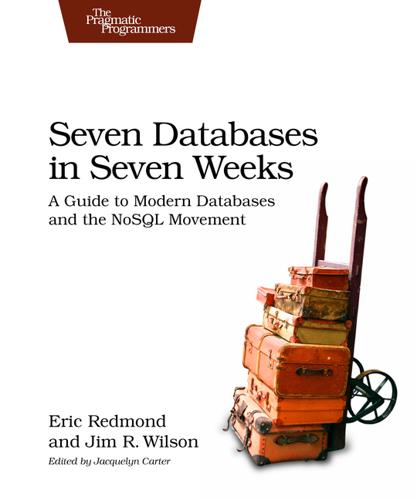
Seven Databases in Seven Weeks: A Guide to Modern Databases and the NoSQL Movement
by
Eric Redmond
,
Jim Wilson
and
Jim R. Wilson
Published 7 May 2012
Also a special thanks to all the unsung heroes who monitor IRC, message boards, mailing lists, and bug systems ready to help anyone who needs you. Your dedication to open source keeps these projects kicking. Copyright © 2012, The Pragmatic Bookshelf. Preface It has been said that data is the new oil. If this is so, then databases are the fields, the refineries, the drills, and the pumps. Data is stored in databases, and if you’re interested in tapping into it, then coming to grips with the modern equipment is a great start. Databases are tools; they are the means to an end. Each database has its own story and its own way of looking at the world.
…
Spidering the graph quickly means you can’t afford network hops to other database nodes, so graph databases don’t scale out well. It’s likely that if you use a graph database, it’ll be one piece of a larger system, with the bulk of the data stored elsewhere and only the relationships maintained in the graph. 9.2 Making a Choice As we said at the beginning, data is the new oil. We sit upon a vast ocean of data, yet until it’s refined into information, it’s unusable (and with a more crude comparison, there’s a lot of money in data these days). The ease of collecting and ultimately storing, mining, and refining the data out there starts with the database you choose.
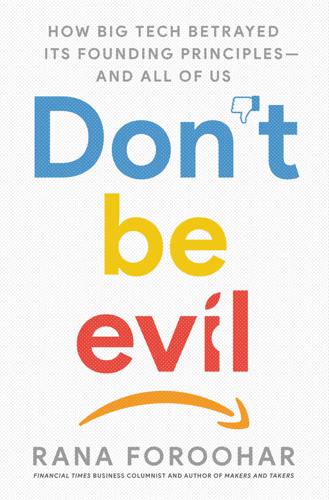
Don't Be Evil: How Big Tech Betrayed Its Founding Principles--And All of US
by
Rana Foroohar
Published 5 Nov 2019
That’s faster than in the online publishing, data processing, and information services industry itself, according to U.S. Bureau of Economic Analysis data. If the current trends hold, our data will be worth $197.7 billion by 2022—more than the total value of American agricultural output. That is resource extraction on a massive scale. If data is the new oil, then the United States is the Saudi Arabia of the digital era. The leading Internet platform companies are the new Aramco and ExxonMobil.54 Data is the new fuel for growth in multiple industries, from manufacturing to retail to financial services. But unlike other assets, it doesn’t necessarily fuel job growth, but rather, profit growth.
…
I’d argue that while we are spending the time to figure out exactly how to regulate and curb the power of Big Tech, we should also make sure that it isn’t mining our biggest natural resource for free. As we learned earlier in this book, the extraction of personal data is America’s fastest growing industry, one that will be worth $197.7 billion by 2022 if current trends hold—more than the total value of American agricultural output.5 If data is the new oil, then the United States is the Saudi Arabia of the digital era. The leading Internet platform companies are the new Aramco and ExxonMobil. But the tech platform companies are not the only ones in the digital surveillance business. Data brokers such as credit bureaus, healthcare firms, and credit card companies collect and sell all sorts of sensitive personal user data to other businesses and organizations that do not have the scale to collect it themselves.
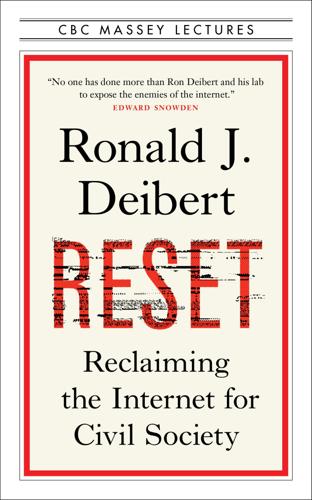
Reset
by
Ronald J. Deibert
Published 14 Aug 2020
There are deeper layers, like those legacy standards and protocols, that remain largely fixed. But caked on top of them is a bewildering array of new applications, features, and devices.14 Weaving through it all are rivers of data, some neatly contained in proper channels, others pouring through the cracks and crevices and spilling out in the form of data breaches. The phrase “data is the new oil” refers to the value to be gained from all the data that is routinely harvested by machines from both humans and other machines — the entire complex bristling with millions of pulsating data-sorting algorithms and sensors. The gradual rollout of fifth-generation cellular technology, known as 5G, will dramatically increase the speed and broadband capacity of cellular networks, fuelling an even greater volume of data circulating among a larger number of networked devices.
…
Research undertaken at the University of Massachusetts, Amherst, in which the researchers performed a life-cycle assessment for training several common large AI models, found that training a single AI model can emit more than 626,000 pounds of carbon dioxide equivalent — or nearly five times the lifetime emissions of the average American car (including its manufacturing).352 It’s become common to hear that “data is the new oil,” usually meaning that it is a valuable resource. Studies like these give the analogy an entirely different and disturbing connotation. While we are on the topic of analogies and metaphors, there is none more misleading than the omnipresent “cloud.” While “the cloud” brings to mind something intangible and unsubstantial, it is precisely the opposite when it comes to the data infrastructure that underpins our communications ecosystem.
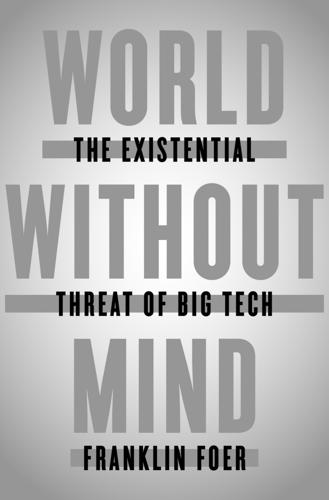
World Without Mind: The Existential Threat of Big Tech
by
Franklin Foer
Published 31 Aug 2017
We need to entertain the possibility that the monopolies of our day may be even more firmly entrenched than the giants in whose path they stride. One of the reasons for the growing distance between the tech companies and their competition is that they have such a large stockpile of a precious asset. • • • ONE OF THE CLICHÉS OF OUR TIME: Data is the new oil. This felt like hyperbole when first articulated, but now feels perfectly apt. “Data” is a bloodless word, but what it represents is hardly bloodless. It’s the record of our actions: what we read, what we watch, where we travel over the course of a day, what we purchase, our correspondence, our search inquiries, the thoughts we begin to type and then delete.
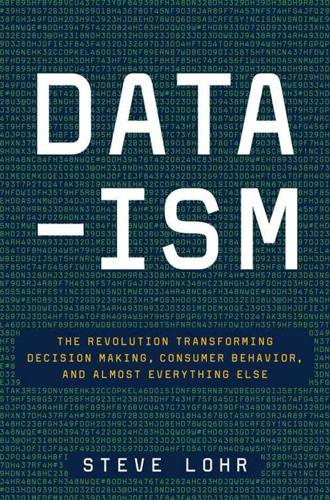
Data-Ism: The Revolution Transforming Decision Making, Consumer Behavior, and Almost Everything Else
by
Steve Lohr
Published 10 Mar 2015
“Now, it’s getting to be valuable.” In September 2014, Zhou left IBM to start her own company. The idea, she says, is inspired by the work she did at IBM, and researchers there will continue to pursue the underlying technologies she developed in service of corporations. But Zhou has her eye on the consumer market. If data is the new oil, she says, then we are all data wells, and potentially valuable ones. The data-infused profiles of a person’s traits and values, Zhou says, should be exploited by the individual as a kind of currency in exchange for truly personalized products, services, and advice from businesses, with tailored pricing as well.
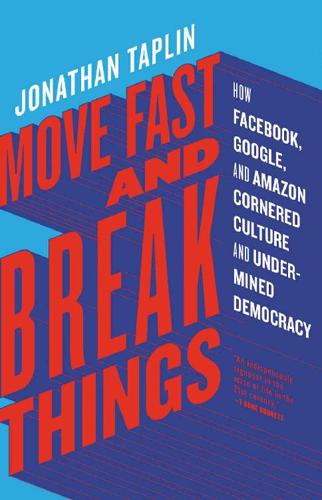
Move Fast and Break Things: How Facebook, Google, and Amazon Cornered Culture and Undermined Democracy
by
Jonathan Taplin
Published 17 Apr 2017
The answer is externalities. Like the Kochs, Google and Facebook are in the extraction industry—their business model is to extract as much personal data from as many people in the world at the lowest possible price and to resell that data to as many companies as possible at the highest possible price—data is the new oil. And like Koch Industries, Google and Facebook create externalities during the extraction process. Brewster Kahle, founder of the Internet Archive, outlined some of these externalities: Edward Snowden showed we’ve inadvertently built the world’s largest surveillance network with the web. China can make it impossible for people there to read things, and just a few big service providers are the de facto organizers of your experience.
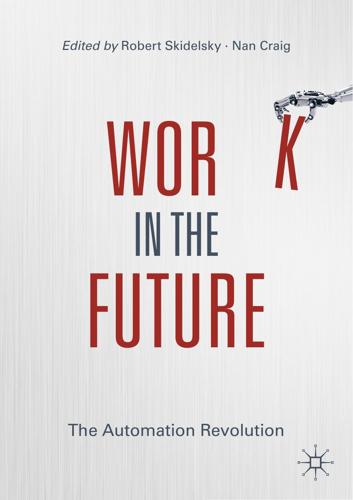
Work in the Future The Automation Revolution-Palgrave MacMillan (2019)
by
Robert Skidelsky Nan Craig
Published 15 Mar 2020
The other aspect that leads to a monopoly is the ability to extract and control data. By situating themselves between all these different groups, platforms position themselves in a space where they can collect a lot of data. Any interaction that happens on the platform becomes a piece of information that can then be fed into things like machine learning. If data is the new oil, platforms are the new oil rigs. Their intermediary nature allows them to build a moat around their business since as they collect more and more data, it become increasingly difficult for the competitors to beat them. The result is again a tendency towards monopolisation, as the data-rich get richer.
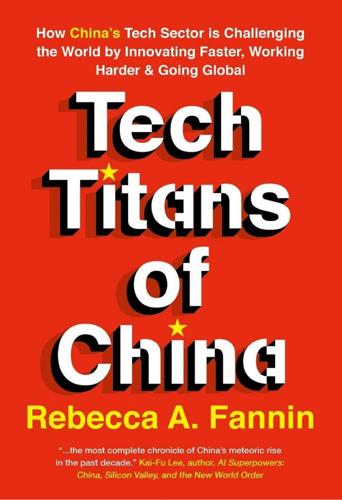
Tech Titans of China: How China's Tech Sector Is Challenging the World by Innovating Faster, Working Harder, and Going Global
by
Rebecca Fannin
Published 2 Sep 2019
But he emphasizes that China is catching up at an astonishingly rapid rate in implementing the technology in practical ways. China has an advantage based on large numbers of well-trained AI talent, a supportive government policy, and access to a vast amount of data sets powering AI and gleaned from China’s world-leading number of internet and mobile phone users, he notes. In the age of AI, data is the new oil, so China is the new Saudi Arabia, says Lee, author of AI Superpowers.4 His venture investment firm in Beijing, Sinovation Ventures, which I’ve visited multiple times, is betting on AI’s future. Lee, who is widely known for his pioneering work in speech recognition and artificial intelligence, is an investor in five Chinese AI companies worth more than $1 billion.
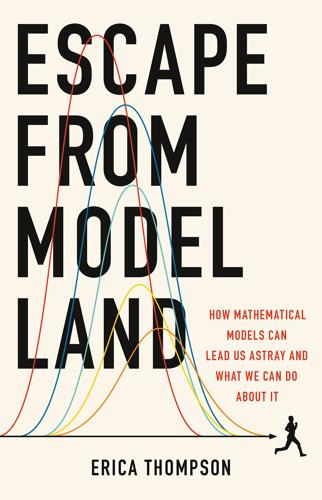
Escape From Model Land: How Mathematical Models Can Lead Us Astray and What We Can Do About It
by
Erica Thompson
Published 6 Dec 2022
Not just in science, but those who are doing any kind of quantitative analytics: actuaries, financial traders, energy forecasters, start-up founders, humanitarian responders, public health analysts, environmental consultants, social-media marketers, bookies, sports teams – you name it! Models are ubiquitous now in everyday life, analysing and interpreting rivers of data gathered in many different ways from personal devices to satellites. If ‘data is the new oil’, then models are the new pipelines – and they are also refineries. How are models constructed? To whom do they deliver power? How should we regulate them? How can we use them responsibly? I do not have final answers to these questions, but I hope that this book can help to address them: first, by reframing generic worries about models into more specific and tractable questions; second, by emphasising that the social and political content of models is at least as important as their mathematical and statistical content; and third, by offering a guide to some of the routes by which we can escape from Model Land. 2 Thinking Inside the Box There are more things in heaven and earth, Horatio, Than are dreamt of in your philosophy.
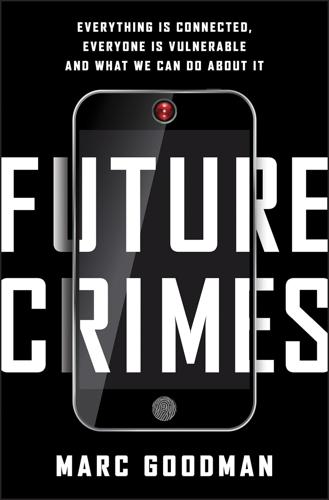
Future Crimes: Everything Is Connected, Everyone Is Vulnerable and What We Can Do About It
by
Marc Goodman
Published 24 Feb 2015
There’s an App for That Location, Location, Location CHAPTER 5: THE SURVEILLANCE ECONOMY You Thought Hackers Were Bad? Meet the Data Brokers Analyzing You But I’ve Got Nothing to Hide Privacy Risks and Other Unpleasant Surprises Opening Pandora’s Virtual Box Knowledge Is Power, Code Is King, and Orwell Was Right CHAPTER 6: BIG DATA, BIG RISK Data Is the New Oil Bad Stewards, Good Victims, or Both? Data Brokers Are Poor Stewards of Your Data Too Social Networking Ills Illicit Data: The Lifeblood of Identity Theft Stalkers, Bullies, and Exes—Oh My! Online Threats to Minors Haters Gonna Hate Burglary 2.0 Targeted Scams and Targeted Killings Counterintelligence Implications of Leaked Government Data So No Online Profile Is Better, Right?
…
LeT simply processed the data the public was leaking and leveraged them in real time to kill more people and outmaneuver authorities. That was terrorism in the digital age circa 2008. What might terrorists do with the technologies available today? What will they do with the technologies of tomorrow? The lesson of Mumbai is that exponential change applies not just for good but for evil as well. Data Is the New Oil Data is constantly being generated by everything around us. Every digital process, sensor, mobile phone, GPS device, car engine, medical lab test, credit card transaction, hotel door lock, report card, and social media exchange produces data. Smart phones are turning human beings into human sensors, generating vast sums of information about us.
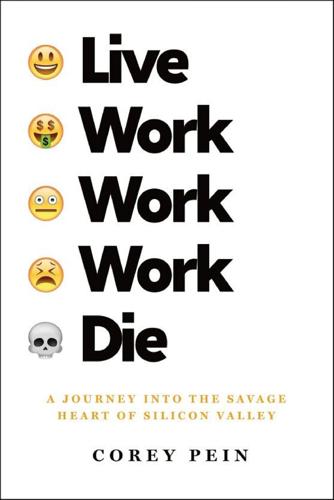
Live Work Work Work Die: A Journey Into the Savage Heart of Silicon Valley
by
Corey Pein
Published 23 Apr 2018
Shouldn’t you be working? Why are you reading this? Click. Swipe. Share. We insist. Anxious? Have some dopamine. Ding! Have some more. Boredom was once possible. Idle hands made tremendous things. Today, no one is idle. Everybody’s working, even when they tell themselves they’re taking a break. It is said that “data is the new oil.” But we are the data; the new oil is us. And unlike oil, we are a renewable resource. The startup bubble that began around 2005 ended approximately twelve years later without fanfare. Easy money for half-baked startups dried up, as did the initial public stock offerings of overhyped companies.
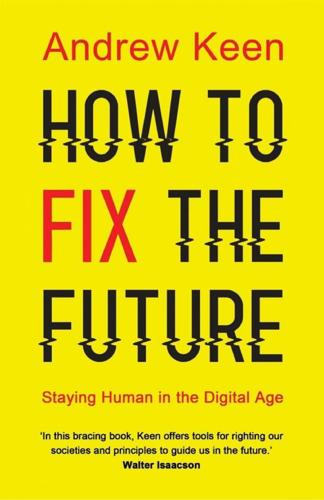
How to Fix the Future: Staying Human in the Digital Age
by
Andrew Keen
Published 1 Mar 2018
Astra Taylor, The People’s Platform: Taking Back Power and Culture in the Digital Age (Metropolitan Books, 2014). 7. Jaron Lanier, Who Owns the Future? (Simon & Schuster, 2013), 336. 8. Keen, The Internet Is Not the Answer, 27–28. 9. Ibid., 182. 10. Geoff Descreumaux, “One Minute on the Internet in 2016,” wersm.com, April 22, 2016. 11. The idea that “data is the new oil” has been expressed by numerous pundits including Meglena Kuneva, the European consumer commissioner; the Silicon Valley venture capitalist Ann Winblad; and the IBM CEO Virginia Rometty. 12. John Gapper, “LinkedIn Swaps Business Cards with Microsoft,” Financial Times, June 15, 2016. 13. Quentin Hardy, “The Web’s Creator Looks to Reinvent It,” New York Times, June 7, 2016. 14.
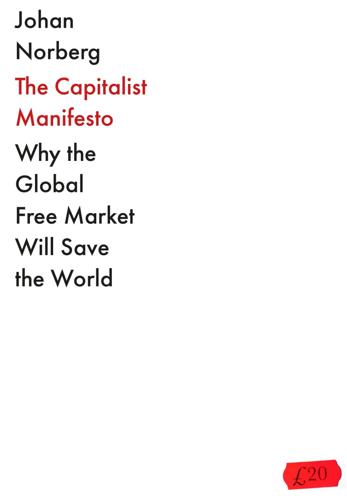
The Capitalist Manifesto
by
Johan Norberg
Published 14 Jun 2023
These companies can take advantage of spectacular network effects. You have to be on Facebook because so many people are already there, and when you join, the platform becomes even more indispensable for others. Then Facebook gets more and more data, which means they can tailor their services and their ads to even more people. Data is the new oil, so success breeds success for social media, search engines, map services, e-commerce, payment apps, streaming, app-based taxi services and other digital services. At the same time, the debate about social media has taken a very dark turn. What was once considered the salvation of democracy is now more often seen as its gravedigger.
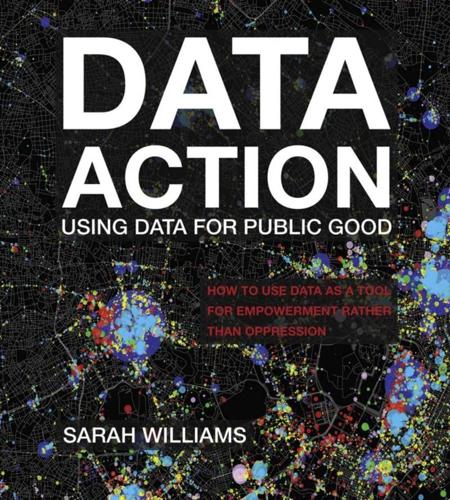
Data Action: Using Data for Public Good
by
Sarah Williams
Published 14 Sep 2020
In a recent book about the topic, The Costs of Connection: How Data is Colonizing Human Life Appropriating It for Capitalism, the authors Nick Couldry and Ulises Mejias define data colonialism as “the extension of the global process of extraction that started under colonialism and continued through industrial capitalism, culminating in today's new form: instead of natural resources and labor, what is now being appropriated is human life through the conversation into data.” 9 It is we, the world's citizens, who collectively make the data they are referring to by providing large corporations and many smaller ones with detailed information of every moment of our lives: everything from our real-time geo-location to our email records, most of it time-stamped. That data belongs to companies who log and package it to sell it as a product to others for everything from ad targeting to improving transport services. We might have heard it said that “data is the new oil”—and, according to the authors of The Costs of Connection, we are little drops of oil, being exploited for profit and control. Similarly, as the authors of Compromised Data express it in their book on the topic: “data is being employed to accelerate prevalent neoliberal redefinitions of the role of the state and the transformation of citizenship into consumer practices.” 10 The concept of data colonialism is hard to wrap your head around, so I will attempt to share my view on its meaning.
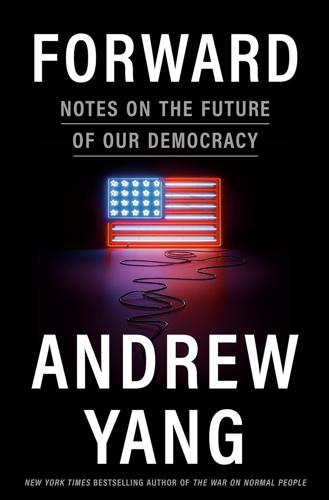
Forward: Notes on the Future of Our Democracy
by
Andrew Yang
Published 15 Nov 2021
Fortune 500 companies do it. Even local mom-and-pop shops do it with basic Google or Facebook ads. On my campaign we tried to be responsible, but all of the structural forces pushed us to gather as much consumer data as possible. Data has become big business. How big? You might have heard the saying that “data is the new oil.” That may be an understatement. Consider that, as of the time of this writing in mid-2021, ExxonMobil is valued at $258 billion. What is Facebook valued at? $1 trillion. Google? $1.7 trillion. Both Facebook and Google are built largely on the monetization of our data. Most of their revenue comes from advertising businesses that rely upon consumer targeting.
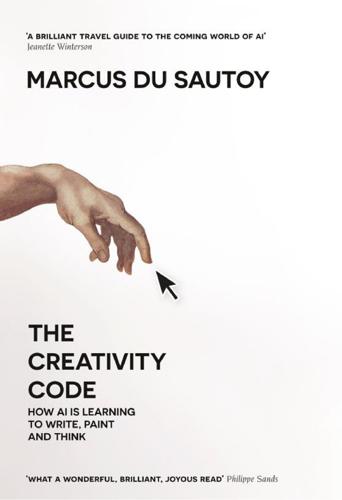
The Creativity Code: How AI Is Learning to Write, Paint and Think
by
Marcus Du Sautoy
Published 7 Mar 2019
One of the users said she was a closet lesbian mother and that the data about her movie preferences could have revealed this fact. That you might be able to infer sexual orientation or political leanings from your movie preferences has led to this being called the Brokeback Mountain factor. Eventually the case was settled out of court, but it led to Netflix cancelling the second round of the competition. Data is the new oil, but we are spilling it all over the internet. Who owns that data and what can be done with it is going to be a major question for society as we head into a future fuelled by this oil. How to train your algorithm You may feel there is something scary about algorithms telling you what you might like if it means you will never see things it thinks you won’t like.
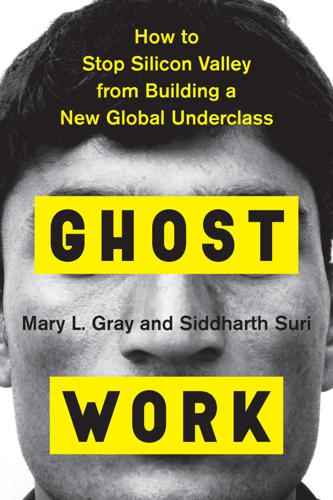
Ghost Work: How to Stop Silicon Valley From Building a New Global Underclass
by
Mary L. Gray
and
Siddharth Suri
Published 6 May 2019
They also rely on people doing ghost work to improve their services’ algorithms and artificial intelligence by cleaning up training data from large stores of proprietary data. Tech companies collect and archive information about how people use their sites. Data such as top search-query terms, popular song choices, and mouse cursor movements can be harvested to fuel product development. If customer data is the new oil, the people doing ghost work operate the rigs. The biggest difference between MTurk and tech companies’ internal platforms, like UHRS, is that MTurk recruits and sells labor as well as the platform work site itself, while, on big tech companies’ platforms, a third party—a vendor management system (VMS)—recruits and supplies ghost work labor.
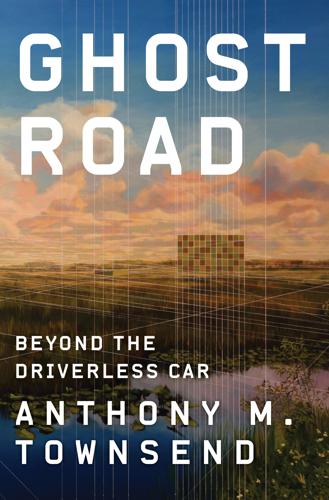
Ghost Road: Beyond the Driverless Car
by
Anthony M. Townsend
Published 15 Jun 2020
v=B8R148hFxPw. 35reduced the cost of lidar: Kirsten Korosec, “Five Things to Know about the Future of Google’s Self-Driving Car Company: Waymo,” Fortune, January 8, 2017, http://fortune.com/2017/01/08/waymo-detroit-future/. 35higher resolution than radar and longer range: Sebastian Thrun et al., “Stanley: The Robot That Won the DARPA Grand Challenge,” Journal of Field Robotics 23, no. 9 (2006): 661–92, http://isl.ecst.csuchico.edu/DOCS/darpa2005/DARPA%202005%20Stanley.pdf. 35more than 3,000 smartphone-toting citizens: Author’s calculation based on Brian Krzanich, “Data Is the New Oil in the Future of Automated Driving,” Intel, November 15, 2016, https://newsroom.intel.com/editorials/krzanich-the-future-of-automated-driving/#gs.dcqfk7. 36neural networks were put to work in banks and postal systems: Leon Bottou, “Graph Transformer Networks,” Leon Bottou (website), September 28, 2018, https://leon.bottou.org/talks/gtn. 37The occupancy grid provides a geometric structure: Lipson and Kurman, Driverless, 93–94. 38these predictions are represented by a cone of uncertainty: Lipson and Kurman, Driverless, 95–98. 38more people will have died at the hands of drivers: World Health Organization, Global Status Report on Road Safety: Time for Action (Geneva, Switzerland: World Health Organization, 2009), ix. 38kill more children and young adults (age 5 to 29): World Health Organization, Global Status Report on Road Safety 2018 (Geneva, Switzerland: World Health Organization, 2018). 40autonomous vehicles can operate: For instance, see Lipson and Kurman, Driverless, 127–36, 143–48, which scopes out a strictly limited role for government in the driverless revolution. 40“Why would we invest in putting wires in the road?”
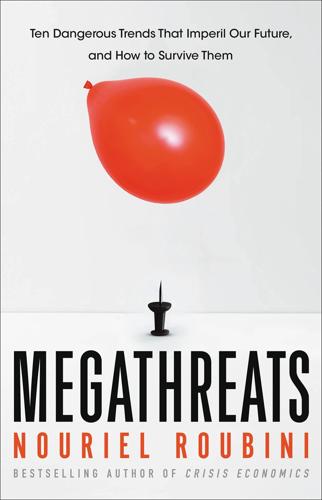
MegaThreats: Ten Dangerous Trends That Imperil Our Future, and How to Survive Them
by
Nouriel Roubini
Published 17 Oct 2022
“China Drafts Tough Rules to Stop Data from Leaving Its Borders as Beijing Tightens Grip on Information,” the South China Morning Post reported in October 2021. The Cyberspace Administration of China wants to review all business-processing data before it exits the country.30 The United States is also imposing restrictions on Chinese ownership of apps that can collect data of US citizens. Since data is the new oil, the crucial driver of big business, this is the beginning of a much wider form of protectionism and trade restrictions. Tariffs and restrictions imposed by both countries during the Trump administration have accelerated decoupling. A more fragmented economy will increasingly divide the world into two competing economic systems, one dominated by the West, one by China.

The Sirens' Call: How Attention Became the World's Most Endangered Resource
by
Chris Hayes
Published 28 Jan 2025
Today, Forbes’ list of the largest US companies is dominated by banks and tech firms: Microsoft; Apple; Google’s parent, Alphabet; Meta; and Amazon.[30] The central locus of economic activity has moved from those firms that manipulate atoms to those that manipulate bits. Typically, we tend to think of the rise of this new form of economic production as being dependent on information and data. “Data is the new oil” has become a kind of mantra of the age; whoever controls large stores of information are the power brokers of our time. This view is not completely wrong; information is vitally important. But it crucially misstates what’s both so distinct and so alienating about the era we’ve entered.
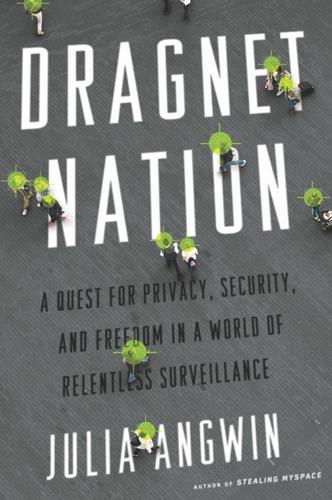
Dragnet Nation: A Quest for Privacy, Security, and Freedom in a World of Relentless Surveillance
by
Julia Angwin
Published 25 Feb 2014
Tracking is so crucial to the industry that in 2013 Randall Rothenberg, the president of the Interactive Advertising Bureau, said that if the industry lost its ability to track people, “billions of dollars in Internet advertising and hundreds of thousands of jobs dependent on it would disappear.” Meglena Kuneva, a member of the European Commission, summed it up best in 2009 when she said: “Personal data is the new oil of the Internet and the new currency of the digital world.” * * * If you were to build a taxonomy of trackers it would look something like this: GOVERNMENT • Incidental collectors. Agencies that collect data in their normal course of business, such as state motor vehicle registries and the IRS, but are not directly in the data business
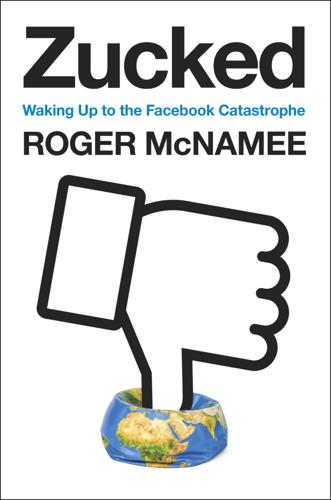
Zucked: Waking Up to the Facebook Catastrophe
by
Roger McNamee
Published 1 Jan 2019
The platforms have also used a variety of techniques to limit would-be competitors’ access to capital. In economic terms, Facebook, Google, and Amazon exploited their economic power to reduce competition. Regulators are reconsidering their hands-off policies. Past bragging by internet platforms—statements like “software is eating the world” and “data is the new oil”—has invited greater scrutiny. User data has value, even if users do not understand that to be the case. We know this because Facebook and Google are two of the most valuable companies ever created, and their businesses are based on monetizing user data. Harm is increasingly evident, and policy makers and regulators are taking notice.
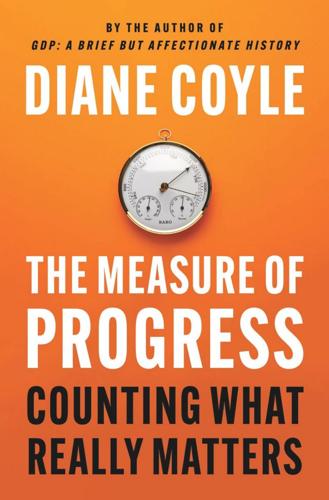
The Measure of Progress: Counting What Really Matters
by
Diane Coyle
Published 15 Apr 2025
Data is often not f ree, but one rationale for including it here is that the value of data collected by tech companies can be considered an alternative estimate of the scale and impact of free digital products. Another reason is that data’s characteristics mean t here will be a wedge between price and surplus, or between price at the margin and on average. In any case, it is at the heart of the digital economy. The cliché that data is the new oil is profoundly incorrect in one way (oil is a rival good, and one of data’s key features is that it is non-rival), but it gets to the core point that data is the new fuel of the economy. To speak of the data economy or digital economy may soon sound as weird as talking about the electricity economy.
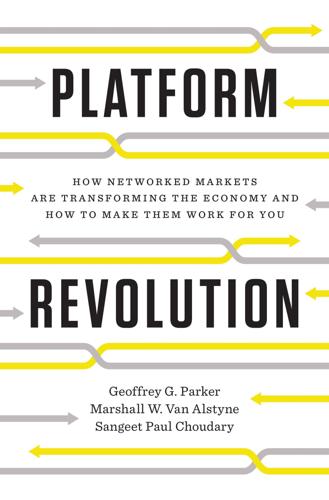
Platform Revolution: How Networked Markets Are Transforming the Economy--And How to Make Them Work for You
by
Sangeet Paul Choudary
,
Marshall W. van Alstyne
and
Geoffrey G. Parker
Published 27 Mar 2016
As of 2011, there were more than three thousand games on Facebook, collectively weakening Zynga’s individual bargaining power.20 The startup’s response may be to sell, to fight back through multihoming, or to expand into other business arenas. Zynga, for example, now multihomes on Tencent’s QQ social network and on the Apple and Google mobile platforms, as well as offering its own cloud service. HOW PLATFORMS COMPETE (3): LEVERAGING THE VALUE OF DATA One of the clichés of the Internet economy is the saying “Data is the new oil”—and like most clichés, it contains a lot of truth. Data can be a source of enormous value to platform businesses, and well-run firms are using data to shore up their competitive positions in a wide variety of ways. Platform businesses can use data to improve their competitive performance in two general ways—tactically and strategically.
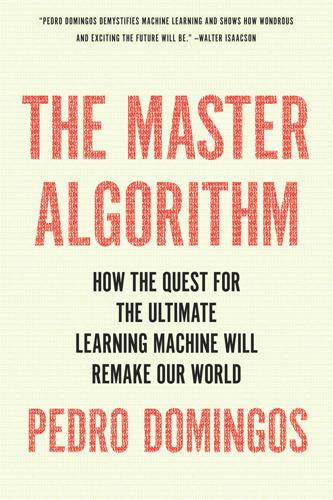
The Master Algorithm: How the Quest for the Ultimate Learning Machine Will Remake Our World
by
Pedro Domingos
Published 21 Sep 2015
The race is on, and whoever learns fastest wins. It doesn’t stop with understanding customers better: companies can apply machine learning to every aspect of their operations, provided data is available, and data is pouring in from computers, communication devices, and ever-cheaper and more ubiquitous sensors. “Data is the new oil” is a popular refrain, and as with oil, refining it is big business. IBM, as well plugged into the corporate world as anyone, has organized its growth strategy around providing analytics to companies. Businesses look at data as a strategic asset: What data do I have that my competitors don’t?
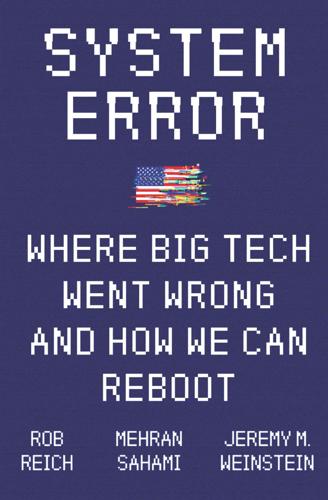
System Error: Where Big Tech Went Wrong and How We Can Reboot
by
Rob Reich
,
Mehran Sahami
and
Jeremy M. Weinstein
Published 6 Sep 2021
An age of smart machines that delivers increased efficiency in the workplace might well bring about a new chapter in economic growth and productivity. Of course, there’s a huge downside risk as well: if the age of automation displaces huge numbers of people from the workforce, many people will lose a reliable source of income and suffer a threat to their material welfare. It’s been said that if big data is the new oil of the economy, then AI is the electricity. Andrew Ng, a leading AI scientist, says that AI will produce “automation on steroids” and transform every industry known to humankind. The benefits of increasing automation are easy to see, but the costs are often concentrated and sometimes hard to pin down.
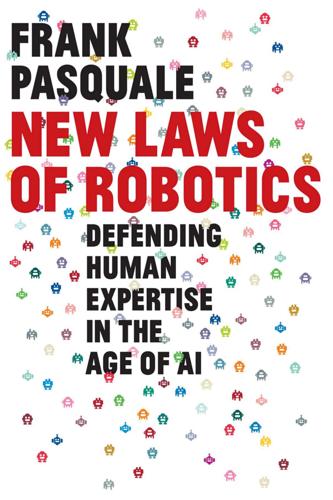
New Laws of Robotics: Defending Human Expertise in the Age of AI
by
Frank Pasquale
Published 14 May 2020
“Google’s experiments do appear to have been designed to deceive,” said Oxford researcher Thomas King when interviewed by noted tech journalist Natasha Lomas.81 Travis Korte commented that “we should make AI sound different from humans for the same reason we put a smelly additive in normally odorless natural gas.”82 Korte’s comment puts a new spin on the old saw that “big data is the new oil”—you need to know when you’re dealing with it, lest it blow up in your face. It’s an entirely different matter to have a conversation with a human (however brief) and to be subject to the manipulation of a human-mimicking AI controlled by one of the largest companies on earth. Duplex may seem like an outlier, a deputation of small talk to AI with little lasting impact.
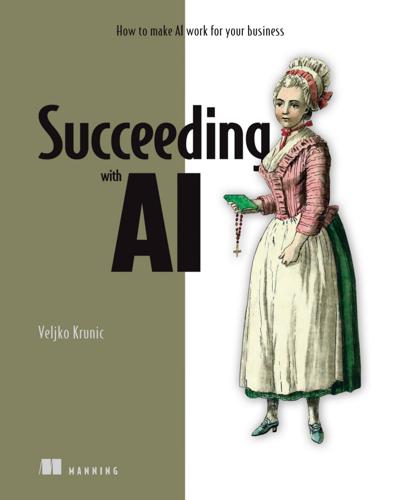
Succeeding With AI: How to Make AI Work for Your Business
by
Veljko Krunic
Published 29 Mar 2020
TIP Starting with technology stack considerations as your main focus can lead you into the trap of overconcentrating on the infrastructure, and you can lose focus on the sequence of data science use cases that you should implement. Remember, your attention is a finite resource too. Let’s embrace the analogy that data is the new oil. If you need a new oilfield, you’d put your greatest focus into finding oil and understanding what an oilfield looks like. You most certainly wouldn’t start by buying the best oil drilling equipment in the world, with the drilling location as an afterthought. The same thing applies to data—concentrate on finding oil, not on the drilling equipment.
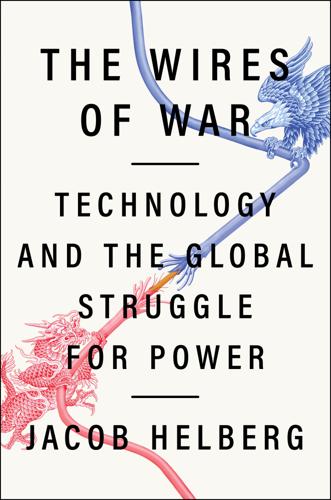
The Wires of War: Technology and the Global Struggle for Power
by
Jacob Helberg
Published 11 Oct 2021
Already, there are reports that data from the African Union’s Chinese-built headquarters in Addis Ababa has been streaming to servers in Shanghai nightly for years,101 and that Huawei engineers have aided the Ugandan and Zambian regimes by intercepting their political rivals’ communications and tracking their locations.102 If data is the new oil, controlling the back-end would yield China a never-ending gusher of sweet Texas crude. Whoever’s digital sphere is larger will boast more data, bigger companies, and more powerful AI capabilities. Every cable under the Pacific, every camera system installed in an African country, could provide grist for Chinese algorithms.

Greater: Britain After the Storm
by
Penny Mordaunt
and
Chris Lewis
Published 19 May 2021
They foretold 9/11, the banking crisis, the rise of nationalism, the climate change movement, the coming of Brexit and the rise of Donald Trump. It wasn’t a lack of data that hid these issues; it was an inability to read the mood. Communication is not the same as conversation. They don’t teach that at university. Graduates may say that data is the new oil, but stock markets are moved as much by sentiment as they are by statistics. Looking at statistics will not help you understand sentiment. Britain may be doing well in aggregate, but the experience in the regions can feel very different. Britain has always been an open country and culture.
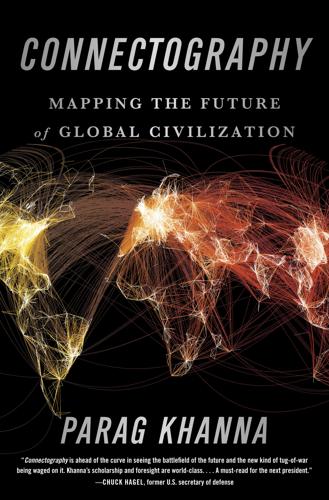
Connectography: Mapping the Future of Global Civilization
by
Parag Khanna
Published 18 Apr 2016
Whether these governments seek to monitor, filter, or protect digital flows, the geographic (and legal) location of servers, cables, routers, and data centers now matters as much as the geography of oil pipelines. The differences are crucial, however. Internet data can be replicated infinitely and exist in multiple places at the same time. Additionally, it can be rerouted or smuggled “in” to its destination, while the receiver has the ability to come “out” as well to access it. If data is the new oil, it is certainly much more slippery. It is true that the Internet is no longer a truly borderless, parallel universe. Even Twitter, the world’s most free and unfiltered medium of one-to-many expression, preemptively restricts content banned in various countries, while Google Maps loads tailored maps approved by national authorities based on the user’s server location.